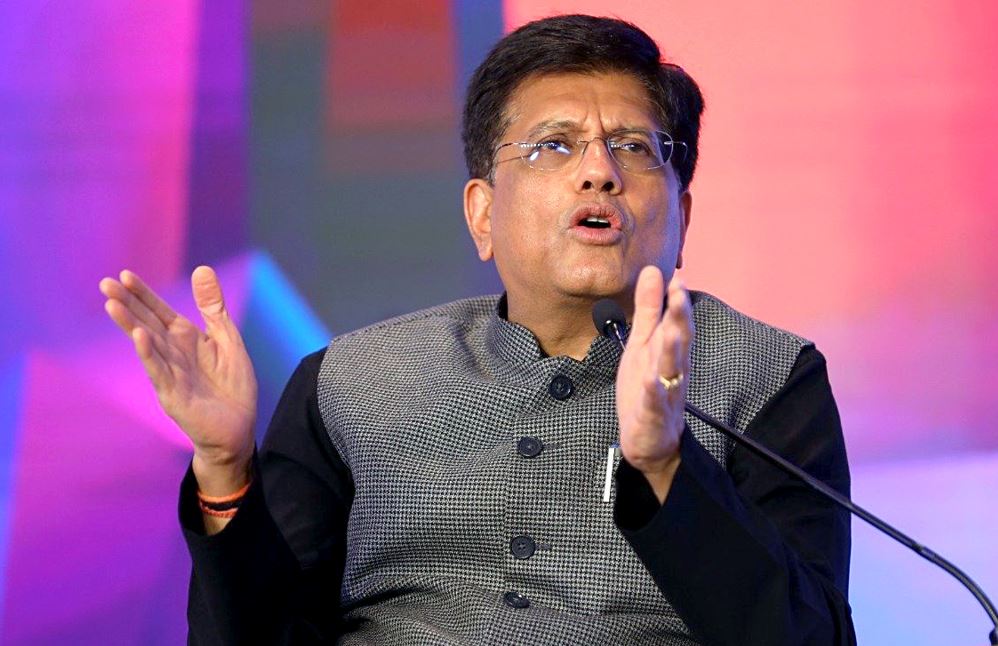With India marching towards USD 750 billion of exports in the fiscal year 2022-23, Minister of Commerce and Industry Piyush Goyal, on Monday called upon industry to tap the many competitive advantages that the country offers, with its focus on high quality of goods and achieving economies of scale. At a time when India is expanding rupee trade with several countries along with a commitment to sustainable goals and the circular economy, the government sees an opportunity for business to leverage partnerships to solve problems that the world is facing today, Goyal said, addressing at the CII Partnership Summit 2023, organised jointly with the Department for Promotion of Industry and Internal Trade (DPIIT). Finance Minister Nirmala Sitharaman will address the CII conclave on Tuesday as the gathering, in alignment with the B20 agenda, sets out to ideate and chalk out strategy on inclusive global value chains for resilient global trade and investment, digital transformation, financing for global economic recovery, climate change, resource efficiency and African economic integration.
“We are looking for resilient, distributed and stable sources of growth supply chains, we are seeking greater market access with minimizing the exposure to risk that many of our economies are facing and we are entering into international agreements with several countries to enable our businesses as we will enable businesses around the world,” Goyal prioritised. These dynamics of the Indian economy make the timely gathering of minds a suitable platform to forge collective solutions to challenges like a strong and responsive international institutional framework for financing global economic recovery and making some non-transparent economic systems accountable, the Minister who is also chairing the Partnership Summit, told Indian and foreign industry leaders and government delegates.
The Summit returns in a physical form after a hiatus of three years that has witnessed major disruptions from a COVID, slowdown in economies, rising inflation and consequently interest rates, inducing deep recession in many parts of the world. Importantly, the meeting comes amidst India’s G20 presidency, the maturing of a startup ecosystem to the world’s third largest with over 100 unicorns and a surge in exports of goods and services of USD 500 billion over two years ago to now an expected USD 700 billion plus worth exports in FY23. India’s increasing attractiveness is emphasized by the large domestic market for businesses and investors, digitalization of MSMEs, development of digital public goods for international use like the recent partnership between India and Singapore on UPI and India’s partnership with world economies, as Goyal highlighted.
The issue of building sustainable resilience in various global economies and enforcing sustainability, as flagged by Goyal, has brought forth a range of proposals for concrete actions from various foreign ministers at the summit. While Minister of Commerce and Consumer Protection of Mauritius Soodesh Satkam Callichurn has urged developing of skills and economic structures as bulwarks in the face of unexpected economic and social crisis, Korean Minister for Trade Dukgeun Ahn has highlighted India’s strength in Artificial Intelligence, Big Data and its large pool of human talent and engineers as the way ahead for resilience. Korea is looking to India’s success in creating favourable conditions for businesses with its ‘Make in India’s self-reliance policies and pivotal role in establishing a stable global supply chain as much as Indonesia eyeing further cooperation with India in IT, health and pharmaceuticals. India’s South Asian neighbour Bhutan voiced the need to nurture the health and growth of the financial sector with active response capabilities, which, according to Loknath Sharma, Minister of Industry, Commerce and Energy, can support trade and investment as well as transition to a low-carbon future.
From Latin America, the Cuban Minister of Foreign Trade and Investment Rodrigo Malmierca Diaz highlights the need for partnerships focusing on fair integration of economies into the international trade to help countries reduce asymmetries. Minister for Trade and Industry of Singapore Gan Kim Yong feels ability of businesses to identify and accelerate innovative, sustainable and equitable partnerships will be key to achieving resilience. For Mary Ng, Minister for International Trade, Export Promotion and Small Business of Canada which is negotiating an FTA with India, the mantra for resilience is partnerships between governments and industry to ensure seamless exchange of goods, services and investment. The United Arab Emirates represented by Minister of Economy Abdulla Bin Touq Al Marri and Sultan Ahmed Bin Sulayem, the Group Chairman & Chief Executive Officer of DP World offers the UAE model of collaborating with international partners bilaterally and multilaterally. However, more needs to be done across the world by way of creating physical and digital infrastructure along with efficient and sustainable transport networks to unlock potential emerging market opportunities.









